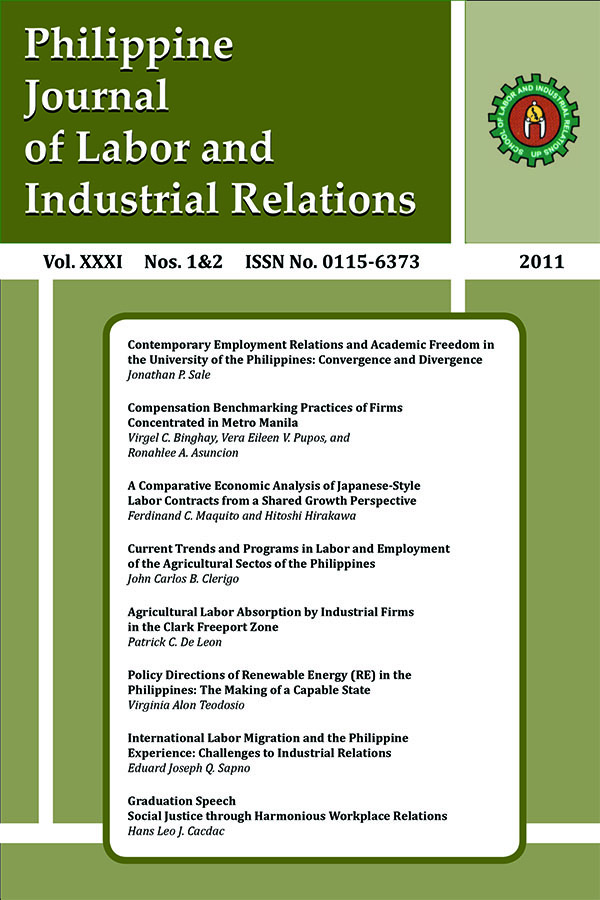International Labor Migration and the Philippine Experience: Challenges to Industrial Relations
Abstract
Labor migration is a key issue in the landscape of Philippine industrial relations. Eleven percent (11%) of our current population is migrant workers, the Philippines being an especially potent source of globally competitive professionals, with a presence in more than two hundred territories around the world. Given this data, this article intends to briefly explore the causes of labor migration; the social cost of domestic and international migration; the effects on the national economy; its emergent challenges to Philippine industrial relations; and a survey of existing legislations that ensure the protection of migrant workers. This article will cover the economic implications of the phenomenon of migration in the Philippine setting. The effects of globalization on Philippine employment practices and social conditions will also be briefly touched upon as a general survey on the basic causes of labor migration. This paper will sample the top three Asian labor-receiving countries in 2010 to sketch sample profiles of Filipino professionals pursuing gainful employment abroad. This paper will be concluded with an evaluation of key areas of concern as prescribed by the Global Forum for Migration and Development, and its application to the Philippine setting.
Published
2020-09-16
How to Cite
SAPNO, Eduard Joseph Q..
International Labor Migration and the Philippine Experience: Challenges to Industrial Relations.
Philippine Journal of Labor and Industrial Relations, [S.l.], v. 31, n. 1&2, sep. 2020.
ISSN 0115-6373. Available at: <https://journals.upd.edu.ph/index.php/pjlir/article/view/7203>. Date accessed: 03 sep. 2025.
Section
Articles


